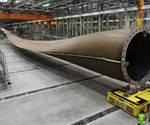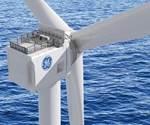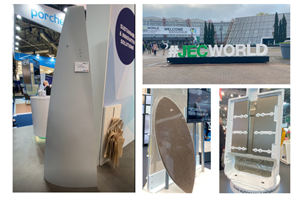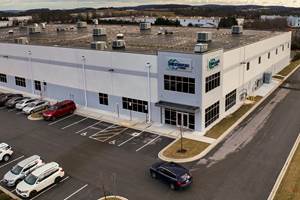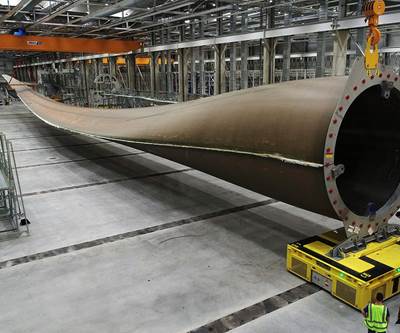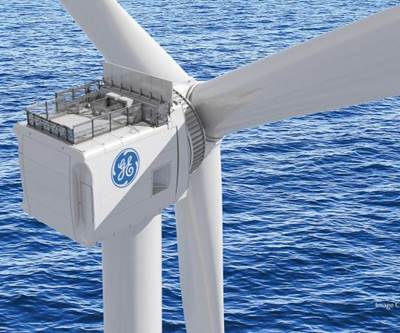GE Haliade-X wind turbines to be used by Dogger Bank Wind Farms
Dogger Bank Wind Farms plans to develop the largest offshore wind farm in the world, off the coast of the U.K.
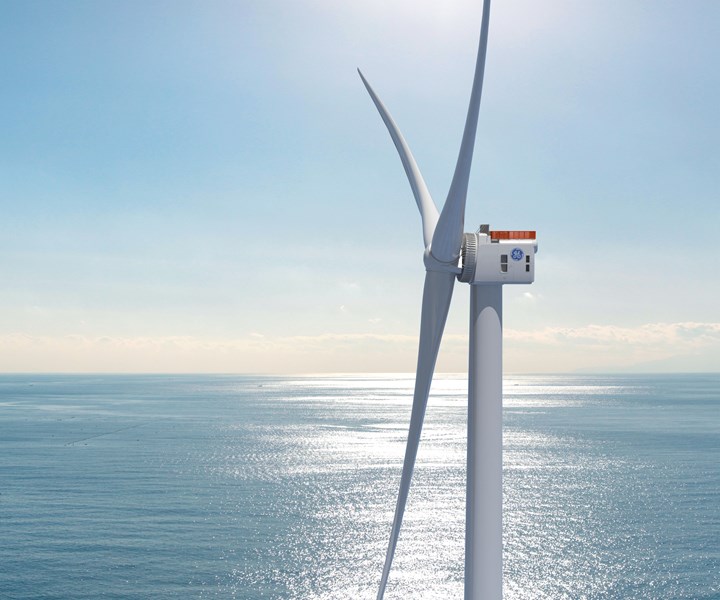
Source | GE Renewables
GE Renewable Energy's (Paris, France) Haliade-X wind turbines will be used by Dogger Bank Wind Farms, which is developing what will reportedly become the world’s largest offshore wind farm off the coast of the U.K., according to a recent deal signed between the two companies. The number of turbines to be installed has not yet been confirmed.
On Oct. 17, GE Renewable Energy announced on its social media channels that it has installed the first full Haliade-X 12-megawatt prototype in Port of Rotterdam, Netherlands. The 107-meter-long wind turbine blades were built by LM Wind Power.
Dogger Bank Wind Farms is a 50/50 joint venture (JV) between Equinor (Stavanger, Norway) and SSE Renewables (Dublin, Ireland). The overall wind farm comprises three 1.2-gigawatt projects located in the North Sea, approximately 130 kilometers from the U.K.’s Yorkshire Coast. The projects were recently successful in the latest Contracts for Difference (CfDs) Allocation Round, the U.K. government’s auction for renewable power. SSE Renewables will lead the development and construction phases of Dogger Bank, and Equinor will lead operations once completed.
“The joint Equinor and SSE Renewables project team on Dogger Bank is excited to work with GE Renewable Energy to introduce the next generation of offshore wind turbine to the U.K., and to be the first European wind farm to install and operate these innovative turbines,” says Paul Cooley, director of capital projects at SSE Renewables. “Dogger Bank will now be home to the largest offshore wind turbines in the world and to this pioneering low-carbon technology, which will play a central role in helping the U.K. become carbon neutral by 2050.”
The Dogger Bank projects will have a combined capacity of up to 3.6 gigawatts, reportedly making it the largest wind farm in the world. It is said to be able to provide enough clean, low-carbon energy to power over 4.5 million homes annually, equivalent to around 5% of the U.K.’s estimated electricity generation.
The projects are expected to trigger approximately £9 billion (more than $11 billion USD) of capital investment between 2020 and 2026 into low-carbon infrastructure and delivering substantial economic benefits to the U.K.
“We are very excited to announce this agreement as it gives us the opportunity to bring the world’s most powerful offshore wind turbine to the world’s largest offshore wind market. We have an important role to play in the U.K.’s offshore wind ambitions and in delivering further carbon emission reductions. Our Haliade-X technology is helping our customers to make offshore wind a more competitive source of clean and renewable energy by reducing the levelized cost of energy (LCOE),” says John Lavelle, president and CEO, offshore wind, at GE Renewable Energy.
The Dogger Bank projects will now progress towards a financial investment decision by the end of 2020, after which there will be confirmation of GE Renewable Energy as turbine supplier.
Onshore construction is expected to commence in early 2020, and first energy generation is expected in 2023. Dogger Bank Wind Farms is currently preparing for the commencement of onshore works, alongside plans to hold events for local residents and the potential supply chain.
Related Content
JEC World 2023 highlights: Recyclable resins, renewable energy solutions, award-winning automotive
CW technical editor Hannah Mason recaps some of the technology on display at JEC World, including natural, bio-based or recyclable materials solutions, innovative automotive and renewable energy components and more.
Read MorePolar Technology develops innovative solutions for hydrogen storage
Conformable “Hydrogen in a Box” prototype for compressed gas storage has been tested to 350 and 700 bar, liquid hydrogen storage is being evaluated.
Read MoreHonda begins production of 2025 CR-V e:FCEV with Type 4 hydrogen tanks in U.S.
Model includes new technologies produced at Performance Manufacturing Center (PMC) in Marysville, Ohio, which is part of Honda hydrogen business strategy that includes Class 8 trucks.
Read MoreHexagon Purus opens new U.S. facility to manufacture composite hydrogen tanks
CW attends the opening of Westminster, Maryland, site and shares the company’s history, vision and leading role in H2 storage systems.
Read MoreRead Next
LM Wind Power manufactures longest wind turbine blade
The 107-meter-long blade has been designed for GE’s Haliade-X 12-megawatt offshore wind turbine.
Read MoreGE to test Haliade-X 12-MW wind turbine prototype
The Haliade-X 12 MW prototype will be installed in Rotterdam, The Netherlands where data will be collected with the aim of obtaining Type Certification.
Read MoreAll-recycled, needle-punched nonwoven CFRP slashes carbon footprint of Formula 2 seat
Dallara and Tenowo collaborate to produce a race-ready Formula 2 seat using recycled carbon fiber, reducing CO2 emissions by 97.5% compared to virgin materials.
Read More
.jpg;width=70;height=70;mode=crop)
